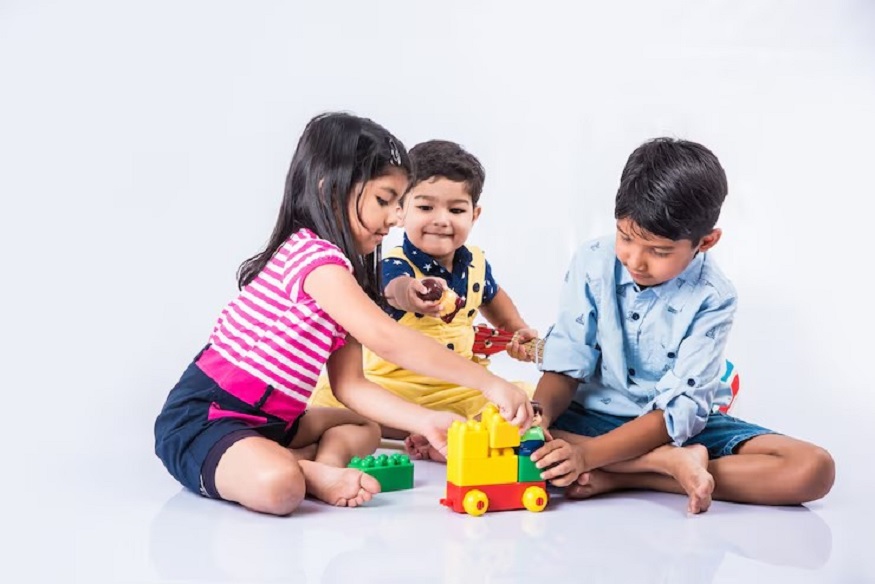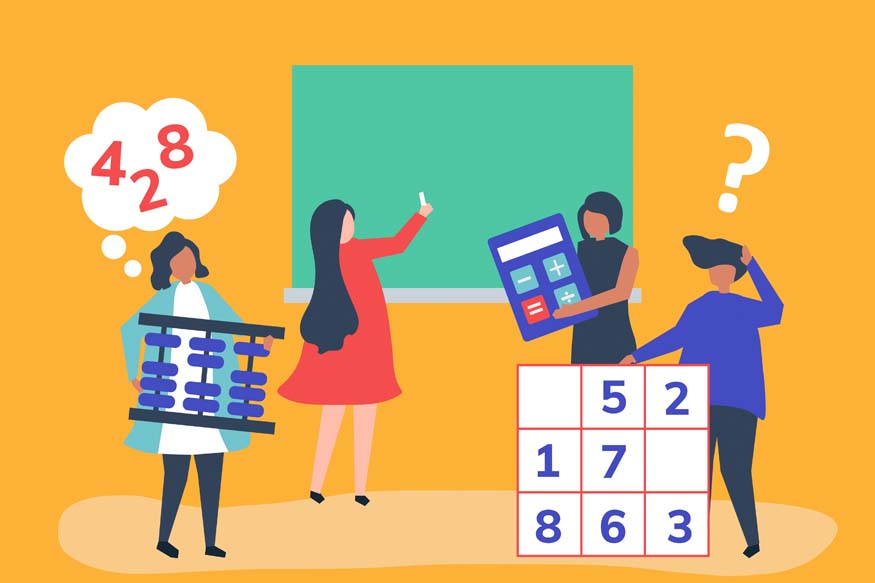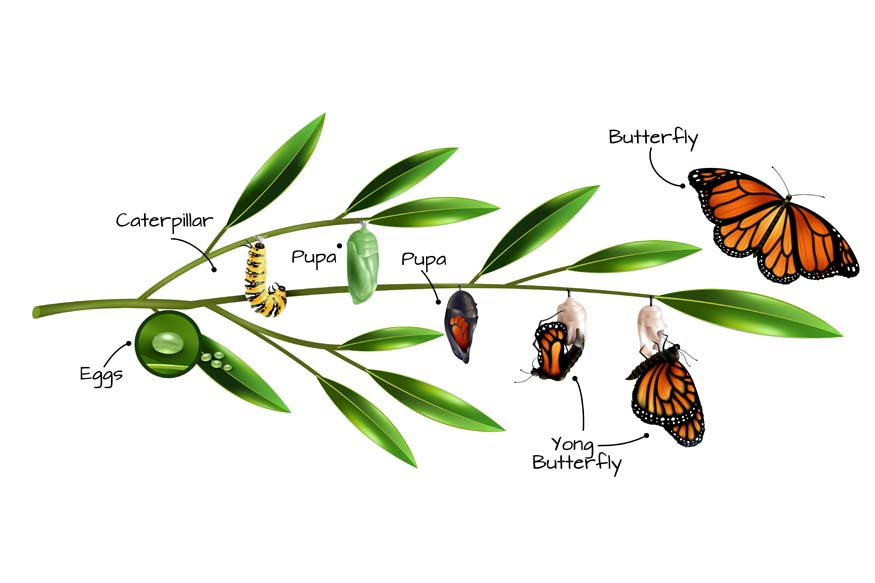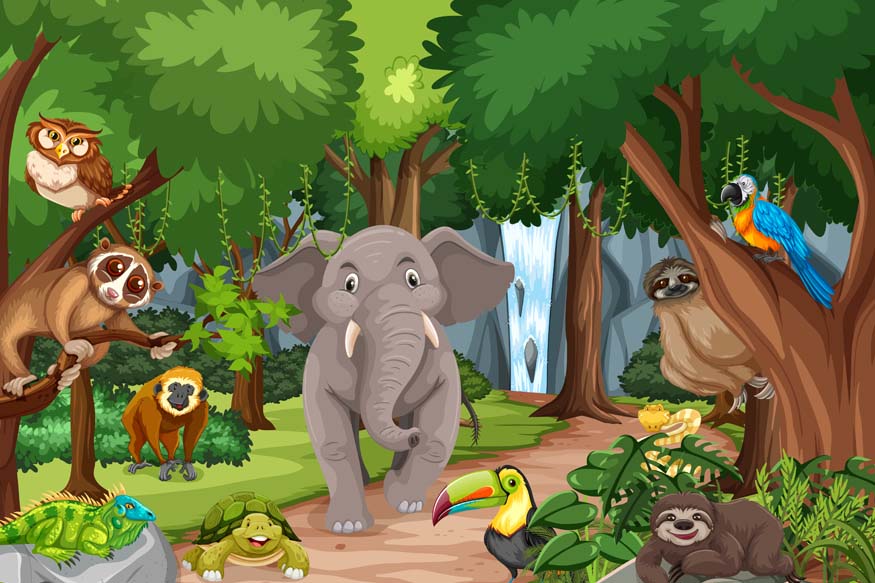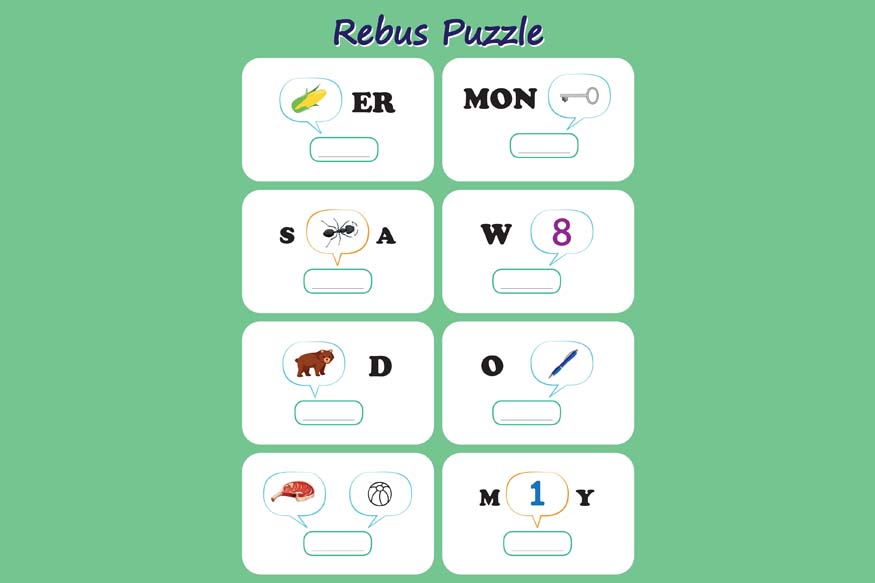Watching your child grow is an extraordinary journey filled with joy, challenges and constant learning. One of the most crucial aspects of this journey is understanding the stages of growth and development. As parents, being aware of the various age development stages helps you to better support your child’s growth and address their unique needs at each phase.
The first five years of your child’s life are crucial for laying the foundation for their future learning, behaviour and health. During these years, a child’s brain is shaped by early experiences, which impact their ability to learn, develop social skills and handle challenges. Emotional, social and physical development in early childhood directly influences a child’s behaviour, social interactions, readiness for school and overall development that form habits lasting till adulthood.
4 domains of the 5 child development stages
Child growth and development stages consist of four key domains. These developmental domains depend on each other, so a child needs to progress in all areas to grow holistically.
- Communication domain
This domain is about learning to communicate effectively with family, friends and teachers. It starts with basic interactions in infancy and develops into complex conversation skills and managing relationships.
- Physical domain
This domain involves gross and fine motor skills. It starts with physical development like – an infant reaching out for things, a toddler walking, a preschooler jumping and climbing, etc. This allows children to move confidently and interact with their world.
- Social-emotional domain
This domain helps children understand themselves and their feelings and how to interact with others. Emotional health and social skills enable children to form positive relationships and manage emotions effectively.
- Cognitive domain
This domain involves thinking, understanding and problem-solving. It includes learning mathematical and scientific concepts. Early cognitive development fosters curiosity and adaptability and shapes how your child learns and understands the world.
Breakdown of the 5 child development stages
|
Stage |
Age |
|
Newborn |
0-3 months |
|
Infant |
3-12 months |
|
Toddler |
1-3 years |
|
Preschool |
3-5 years |
|
School-age |
5-17 years |
- Newborn (0-3 months)
Newborns mainly communicate by crying but you can calm them down by gentle talking. Around 2 months, they start cooing and making vowel sounds. They respond to sounds, track objects with their eyes, grasp objects and lift their heads for longer periods. They try to make eye contact and start smiling at people. They tend to get interested in familiar objects and people from a distance and may get bored with repetitive activities.
- Infant (3-12 months)
Communication: Between 3-6 months, babies start to babble. By 6-9 months, they begin to imitate sounds and laugh. From 9-12 months, they use gestures, mimic sounds and utter a few simple words.
Physical: At around 3-6 months, babies control their head movements and bring their hands together. By 6-9 months, they can sit without support and bounce while standing. From 9-12 months, they start picking up objects, crawling and standing without help.
Social-emotional: In the 3-6 month period, babies respond to facial expressions and different tones of voice. By 6-9 months, they react to gestures like clapping and start to understand emotions. They also become more comfortable with familiar faces and may feel anxious around strangers. By 9-12 months, they express emotions more clearly and build relationships.
Cognitive: From 3-6 months, babies recognise familiar faces, enjoy music and respond to love and affection. By 6-9 months, they develop receptive language skills and start understanding words. From 9-12 months, they imitate gestures, understand the concept of “no” and explore cause and effect by throwing objects.
- Toddler (1-3 years)
Communication: During the toddler years, your child’s language skills grow significantly. They start with a few words and progress to forming full sentences by the age of 3. Their ability to communicate improves continuously during this period.
Physical: Toddlers start using a preferred hand and reach important movement milestones. From 1 year old, they gain confidence in walking and feeding themselves. By 3 years old, your child can dress and undress themselves, use the toilet independently and engage in more active play.
Social-emotional: At 1 year old, your child develops object permanence. From 2 to 3 years old, they experience a wide range of emotions and begin to understand others’ feelings. This stage also marks the beginning of playing with other children and more comfort around strangers.
Cognitive: At 1 year old, toddlers can name body parts and recognise familiar objects in books. By 2-3 years old, your child can name colours and identify shapes which show significant cognitive development.
- Preschool (3-5 Years)
Communication: By age 3, your child’s speech improves noticeably. They start asking more questions and make fewer grammatical mistakes. Their ability to express themselves becomes clearer and more complex.
Physical: Your child’s motor skills start developing rapidly. They confidently ride tricycles, climb playground structures and catch balls. In the classroom, they refine fine motor skills through activities like cutting with scissors for arts and crafts, writing, drawing, etc.
Social-emotional: Your child becomes more comfortable around others and starts engaging in imaginative play and group games. They learn to express their emotions and understand their feelings and actions better.
Cognitive: During this stage, your child’s memory improves significantly. They can sing songs, tell stories, recognise numbers and know their name and gender. They focus better and begin to read independently and also show a keen interest in learning.
- School Age (5-17 Years)
Communication: At 5 years old, your child begins using more complex sentences. They tell stories, answer questions, recite nursery rhymes, sing songs and show advanced language skills.
Physical: They become mostly independent in their fine motor skills. They can dress, eat and wash themselves without help.
Social-emotional: Your child becomes more socially aware. They engage in conversations, make friends, have fewer arguments and express their emotions through actions or words. They enjoy independence but still need reassurance.
Cognitive: From 4 years old, your child develops a better sense of right and wrong. They understand contextual words, comparisons, numbers, colours, sizes and time more clearly.
Understanding the stages of growth and development is essential for supporting your child’s growth. By recognising the unique needs at each age development stages, you can provide the right environment and support. Centre Point School offers a nurturing setting where your child can thrive through each developmental phase. At Centre Point School, our dedicated educators strive to create learning experiences that foster all the domains of child growth and development stages and ensure your child reaches their full potential.

